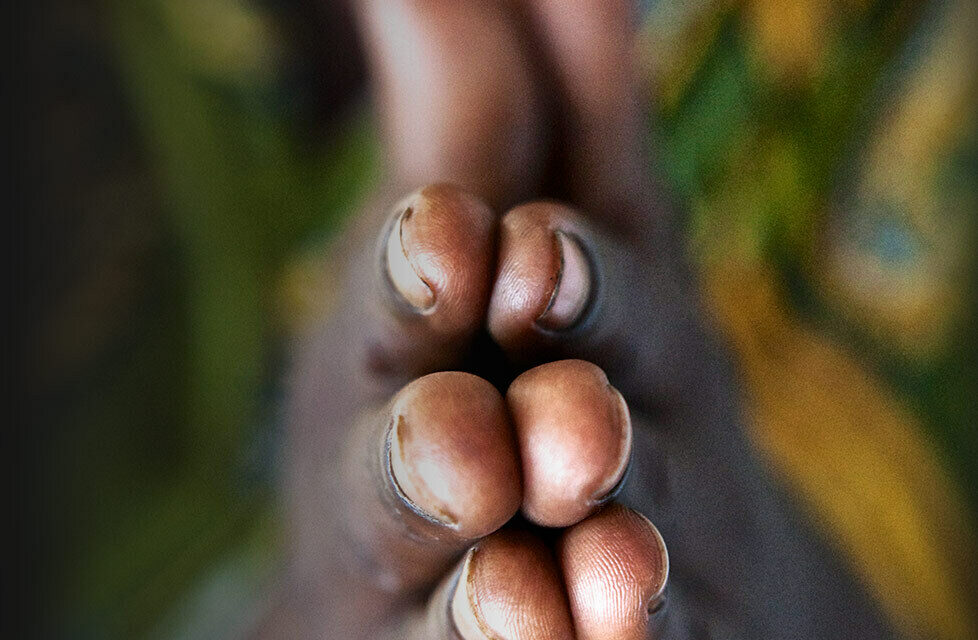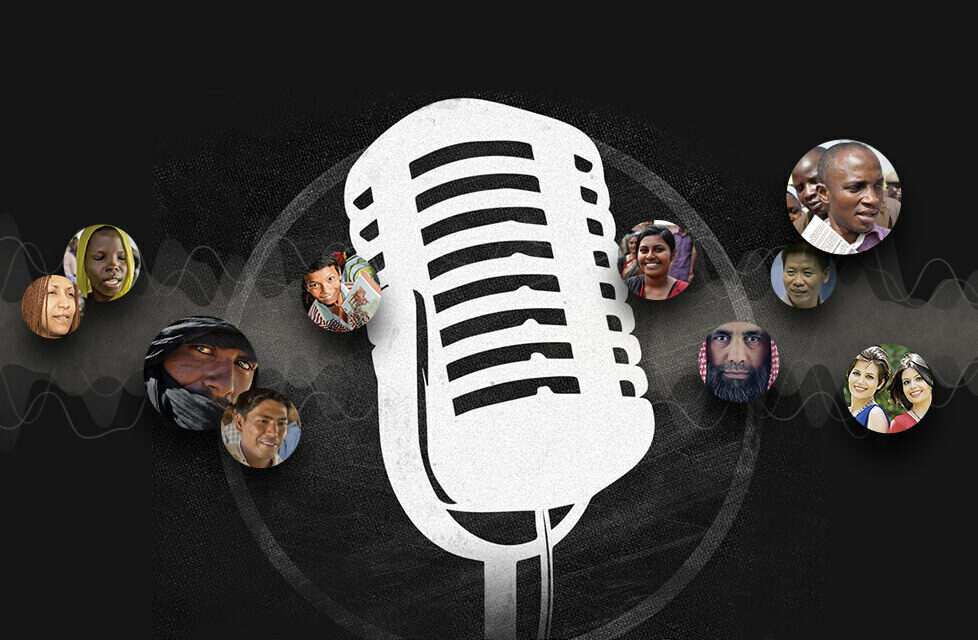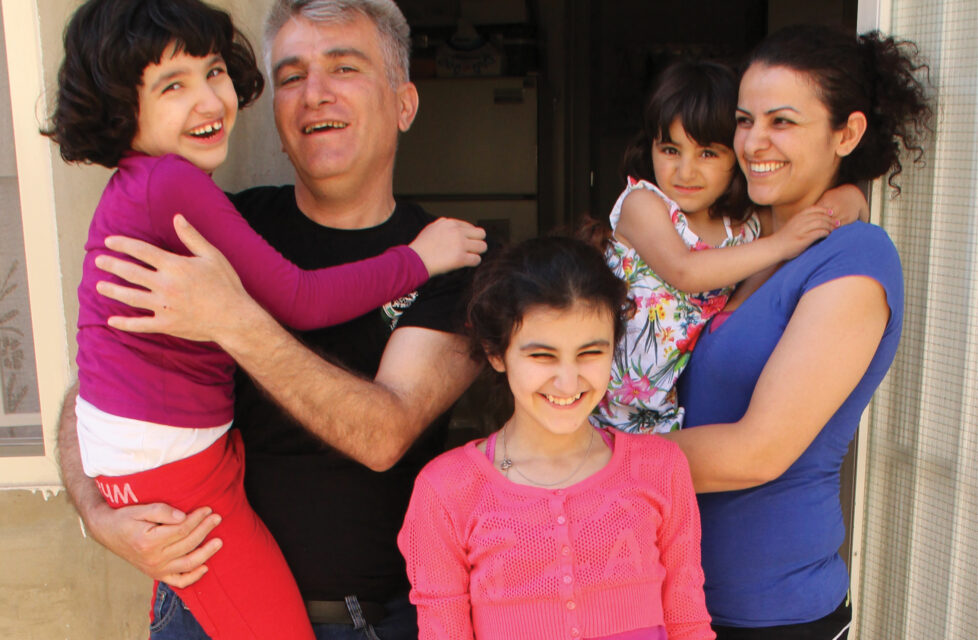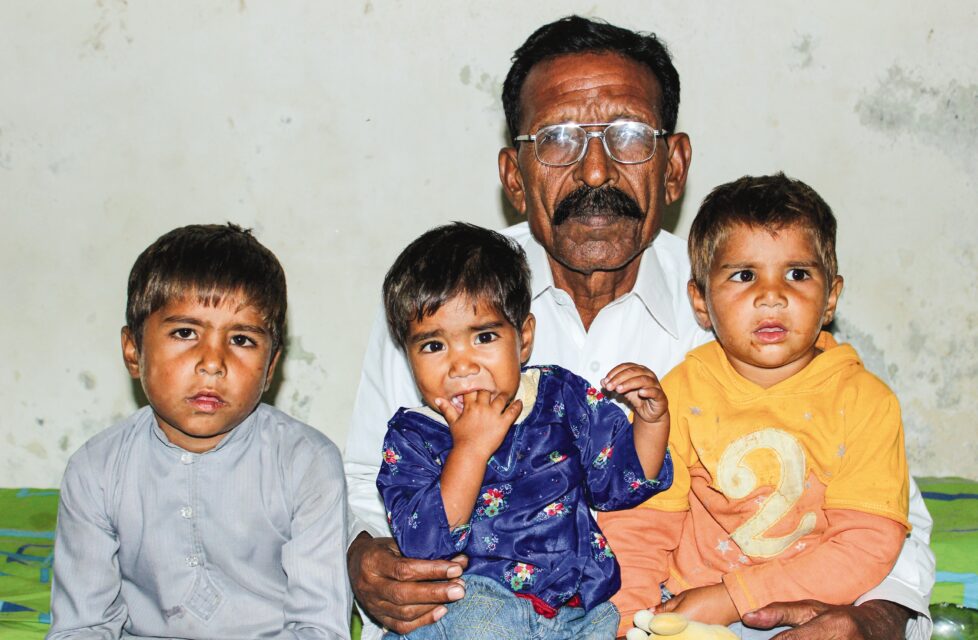Cuban authorities are pressuring a prominent pastor to silence his Christian witness. The pastor and his church have made firm statements supporting biblical principles in opposition to the Cuban government’s policies.
Read MoreMembers of the Islamic State West Africa Province (ISWAP) terrorist group attacked Pemi village on Jan. 20, killing one Christian and kidnapping 17 Christian teenage girls. The attackers also burned several homes and a local church building.
Read MoreAcross the Middle East, Muslims have questions about their faith. But Islamic teaching doesn’t encourage or allow such questions. As a young man in Morocco, Brother Rachid had questions also; he found answers through a Christian radio broadcast and chose to follow Christ. Today he hosts an Arabic-language TV program airing all over the Middle East. On the first broadcast, he asked Muslims to call in with questions about Islam and Christianity. In the first half hour of the program more than 800 people called with questions! Listen to hear how Rachid learned to see outside his own worldview and break down Islamic ideologies he was taught. Over time, his actions and ideas changed; others noticed that his entire life had been transformed. Persecution came swiftly. When his family found out he was a Christian, they kicked him out of the house. Rachid connected with other Christians, which gave him joy and excitement knowing he had a new family, but also fear he could be imprisoned or persecuted for his faith. Rachid will advise how we can help Muslim friends find answers to their questions in Christ. Pray for breakthroughs in the hearts of Muslims as the gospel is shared through TV and radio broadcasts all over the Middle East. You can also watch a video version of Brother Rachid’s testimony. Never miss an episode of VOM Radio! Subscribe to the Podcast.
Read MoreTilahun trusted in Christ eight years ago and became an active member in his church. Then, in 2020, his home was burned, and he was physically attacked by armed men because of his Christian faith. As a result of the attack, his leg had to be amputated.
Read MoreNader, 17, grew up in a Muslim home, but he rejected Islam and became an atheist. After some time, he began to have visions of Christ, and he sought someone to help him understand his dreams. He searched online for answers to his questions and discovered a website for those who have had visions of Jesus in dreams.
Read MoreOn Jan. 18, two Buddhist village leaders assaulted Taeng for his trust in Christ. Many in the village already disliked Taeng for his Christian faith, but the hatred toward him escalated when he began drilling a well to draw water for his family. When village leaders told him he had to renounce his faith if he wanted to continue drilling, Taeng refused.
Read MoreIn late February 2015, the self-proclaimed Islamic State (ISIS) moved into a historically Christian region in northeastern Syria, driving Christians out of a dozen villages. Raman, an Assyrian Christian, and the rest of his village’s 130 households had known the attack was coming. For the first part of the war, the area was under Kurdish control. As the war progressed, ISIS moved in and established a camp just two miles from the village. Both sides sought the strategic location of the village, which was located at the top of a mountain. For several weeks before, ISIS fighters had shopped in the village weekly for vegetables. The jihadists warned the villagers to leave as there would be a battle. The men sent their wives and children away for protection, and they prepared to defend the village. Then on a Friday morning, ISIS soldiers appeared at the historic Assyrian church that had been standing for centuries. They told the Christians, “We are an Islamic nation. Remove the cross from your church.” The next day, they returned with two trucks full of men with weapons, and they threatened the priest: “If you refuse, we will cut your neck.” “We obeyed,” Raman said. “We
Read MoreAmong tribal groups in East Asia, new believers in Christ can be forcibly removed from their homes and villages. Animistic tribesmen desire to please and appease the spirits they worship; those who come to faith in Jesus are seen as angering the spirits. However, those who follow Jesus are part of a new community as brothers and sisters come alongside to encourage one another amidst persecution. Matt and Linda are working with people from one of these tribes. They’ll explain how the gospel is spreading and what Christian persecution looks like in that setting. Linda helps run a Sunday school program which is serving children from believing and unbelieving homes alike. Even parents who don’t know Christ are encouraging their kids to go! Listen as Matt and Linda share the importance of teaching Bible stories in these tribal communities, and how younger generations point their parents toward the Lord. As villagers see the power of God and His love for them, hearts are touched and transformed. Pray for gospel workers in tribal communities in Asia, and for the safe distribution of God’s Word into hostile areas and restricted nations in the region. Never miss an episode of VOM Radio. Subscribe to the podcast.
Read MoreThe terrified couple clung to each other inside their one-room home while the mob of angry Muslims outside shouted insults and threats: “They have burned the Holy Quran! We will teach them a lesson!” Shama cried as her husband, Shahzad, tightened his arms around her and began to pray. At 6 a.m., more than 500 Muslims had gathered outside the young couple’s home near the brick kiln where they worked as bonded laborers. Shama’s husband couldn’t believe the events of the last few months had come to this. Indentured Workers in Pakistani brick kilns Shahzad, his father and four brothers moved to the brick kiln near Kot Radha Kishan, Pakistan, in 2000, when Shahzad was 16. As poor Christians (Pakistan’s lowest social class), they had few employment options. While the work in a brick kiln was grueling, it at least provided them food and a place to sleep. However, as often occurs with poor Christians in Pakistan, the family soon became indebted to the brick kiln owner. The debts are eventually passed on to the children, indenturing many families for life. Although Shahzad’s family was Christian, his father, Nazar, became friends with Muslims living near the kiln. He often read
Read MoreSeveral families have been kicked out of a village in eastern Oaxaca state because of their Christian faith. The traditional religion of the village honors pagan idols through drunken festivals, and the Christian families refused to participate in the festivals.
Read More



